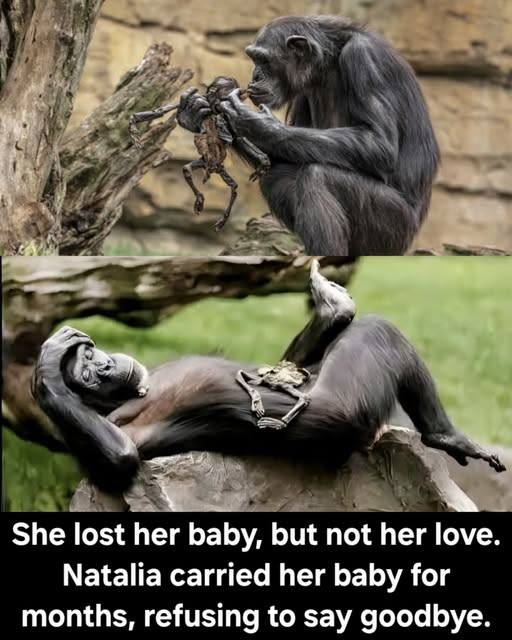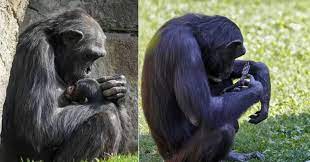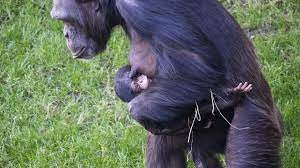Grief Without Words: A Chimpanzee Mother’s Mourning Captivates the World

Grief Without Words: A Chimpanzee Mother’s Mourning Captivates the World
In early 2024, at Bioparc Valencia in Spain, the world witnessed a profound and heart-wrenching display of maternal grief — not from a human, but from a chimpanzee named Natalia.
Just two weeks after giving birth, Natalia’s infant tragically passed away. What followed stunned caretakers, researchers, and animal lovers around the globe: Natalia refused to let go. Instead of leaving the body behind, she carried her baby with her everywhere — cradling, grooming, and gently holding the lifeless form as if hoping to bring it back to life.
For over three months, Natalia maintained this heartbreaking ritual. Through rain and sun, in front of visitors and behind the scenes, she continued to show care, devotion, and mourning for her lost child. Zoo staff made the difficult but deliberate decision not to intervene, allowing Natalia the space to grieve in her own way, on her own time.
This display of grief is more than a story of sadness — it’s a testament to the emotional intelligence and sentient experience of our primate relatives. Experts note that while this behavior is rare, it has been observed in wild and captive chimpanzees before. Mothers, overwhelmed by loss, sometimes carry deceased infants for days, weeks, or even months. What makes Natalia’s mourning particularly striking is its length, visibility, and emotional depth.
“She treated the baby as if it were still alive,” one caretaker shared. “She cleaned it, protected it, even laid next to it with the tenderness any mother would understand.”
Natalia’s mourning has sparked renewed conversation about animal sentience — the capacity to feel emotions such as grief, fear, love, and attachment. Her story challenges outdated views that animals act purely on instinct, instead showing they too experience complex emotional landscapes.
Animal behaviorists and ethicists have used Natalia’s case to emphasize the need for empathy and understanding in zoo care and wildlife conservation. If chimpanzees can grieve, then surely they can feel stress, joy, love, and loneliness. The implications ripple far beyond a single enclosure.
Natalia has since laid her baby to rest naturally, but the images of her holding that tiny body — refusing to forget, refusing to move on before she was ready — remain etched in the minds of millions.
She didn’t need words. Her actions said everything.
And in doing so, she reminded us that grief is not just human — it is universal, powerful, and deserving of recognition, no matter the species.











